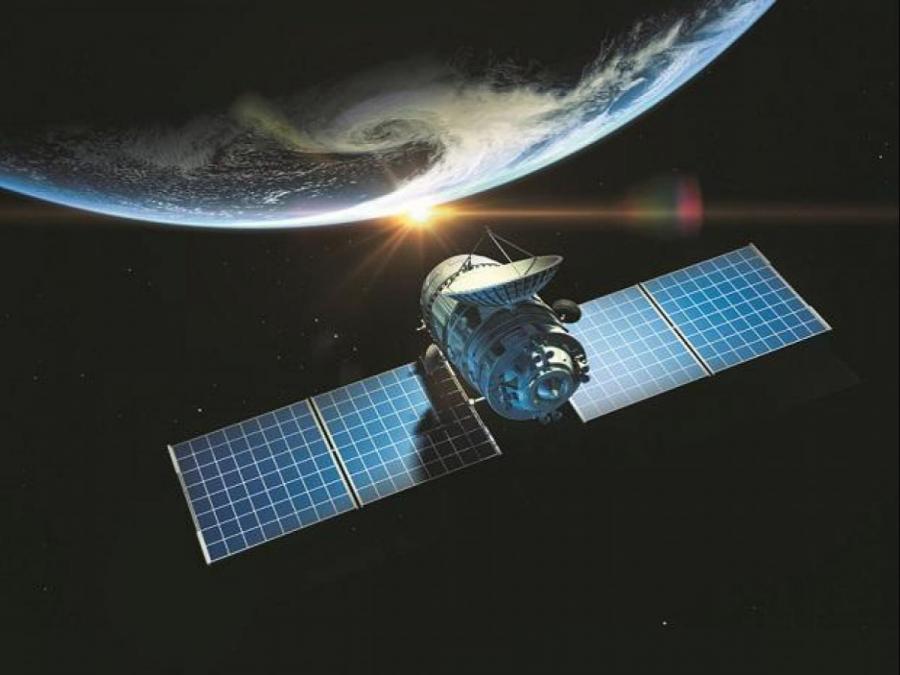
Satellite Communication Services Worth $99.59 Billion, at 9.2% CAGR by 2027
Satellite Communication Market by Application, Component (Equipment and Services), and End-Use: Global Opportunity Analysis and Industry Forecast, 2020–2027.
PORTLAND, OREGON, UNITED STATES, January 11, 2022 /EINPresswire.com/ -- According to Allied Market Research, the satellite communications market was valued at $56,016.2 million in 2019, and is projected to reach $99,588.02 million in 2027, registering a CAGR of 9.2%.
The space industry refers to all the objects/elements, which are indented to leave the planet earth through satellite launch and related services. Ground support equipment, spacecraft, and satellite launch industries are considered as the three major pillars of the space industry. The global space market was valued at around $300 to $400 billion, which constituted the satellite as well as non-satellite industry.
Download Report (210 Pages PDF with Insights, Charts, Tables, Figures) at https://www.alliedmarketresearch.com/request-sample/10884
Satellite data is the process of collecting information about earth through manmade satellites traveling around the earth’s orbit. Satellite data services play an important role in scientific understanding of environmental processes such as carbon capture, albedo change, and others. This information is crucial to manage and safeguard environmental resources. Satellite data is useful for characterizing and monitoring terrestrial & surface features such as forest, desserts, and urban cities.
According to Allied Market Research, the global satellite data services market is estimated to be valued at $5.52 billion in 2019, growing at a CAGR of around 19.1% during the forecast period (2020-2027).
Satellite communications is the technology applied in communication of data, voice, or video at low latency and high bandwidth over long distances by commercial, civil, and government agencies. Satellite communication is utilized in Very Small Aperture Terminal (VSAT) systems, Digital Satellite News Gathering (DSNG), Direct-to-Home (DTH) television broadcasting, and several other applications, owing to the coverage and outreach capacities of satellite communication systems.
Top impacting factors
The significant factors impacting the growth of the global satellite communications market include increase in Internet of Things (IoT) & autonomous systems and rise in demand for military & defense satellite communication solutions, which are expected to drive the global satellite communications market growth during the forecast period. However, cyber security threats to satellite communication and interference in satellite data transmission are anticipated to hamper the growth of the market during the forecast period. Moreover, technological advancements in satellite missions and deployment of 5G network through satellites are expected to offer lucrative opportunities for the market in the future.
Request for Customization at https://www.alliedmarketresearch.com/request-for-customization/10884
Increase in Internet of Things (IoT) and autonomous systems
Robust IoT, artificial intelligence (AI), and autonomous technologies are being increasingly implemented throughout several industries such as automobile, defense, and healthcare. These technical tools are employed to increase the efficiency and effectiveness of the new installation or existing infrastructure.
For instance, in September 2020, Microsoft developed a healthcare cloud service. The healthcare cloud service is a digital health technology aimed to provide seamless interactions among various IoT devices, sensors, and users. Multiple tech giants have started developing smart technologies to support the growth and adoption of autonomous systems in real-world applications. Moreover, autonomous systems provide extended safety and comfort for their users by analyzing real-time data to facilitate overall user experience.
For instance, Samsung Electronics is developing an autonomous driving chip to be installed in vehicles for providing central control and obtain autonomous driving by further exchanging information in real-time through the data centers of Google. Furthermore, smart technologies, such as IoT and autonomous systems, need extensive and secure network connections for their operation. Satellite communication is being increasingly utilized to provide these systems with the required communication channel. For instance, in March 2021, SpaceX filed for approval from the U.S. Federal Communications Commission (FCC) to enable broadband capabilities in moving autonomous vehicles, which will further ensure connectivity in remote areas through SpaceX's satellite system.
An increase in adoption of satellite communication system to enhance the potential of IoT and autonomous technologies is anticipated to propel the growth of the global satellite communication verticals.
Interested to Procure the Data? Inquire here at https://www.alliedmarketresearch.com/purchase-enquiry/10884
Deployment of 5G network through satellites
5G network offers low latency and high bandwidth wireless network. It is still to be deployed in remote and rural areas, owing to lack of infrastructure. Private players are working on increasing the reach of the network through satellite launches worldwide. For instance, in March 2021, SpaceX launched 60 Starlink satellites to provide low latency and high-speed broadband internet globally.
Moreover, satellites built from 5G architecture offer an opportunity for 5G Non-Terrestrial Network deployment in remote regions to provide seamless connectivity to the end users. For instance, in March 2021, Marine Corps, U.S. Navy, Omnispace, and Verizon demonstrated a 5G network based on satellite in the S-band spectrum.
The satellite-based 5G network will allow direct and seamless communication among 5G-capable satellites, terrestrial networks, and small tactical 5G devices. Low Earth Orbit (LEO) satellites enable extended cellular coverage and can be integrated with 5G infrastructure to further improve the Quality of Experience (QoE) for the service. For instance, in May 2019, Gilat Satellite Networks Ltd. demonstrated Low Earth Orbit (LEO) satellite 5G services. The 5G network will provide simultaneous services such as streaming up to 8K video, web browsing, and video chatting. The emerging development of the 5G satellite to support 5G network deployment is anticipated to drive the growth of the satellite communications market.
Schedule a FREE Consultation Call with Our Analysts to Find Solution for Your Business at https://www.alliedmarketresearch.com/connect-to-analyst/10884
David Correa
Allied Analytics LLP
+1 800-792-5285
email us here
Visit us on social media:
Facebook
Twitter
LinkedIn
Distribution channels: Aviation & Aerospace Industry, Technology
Legal Disclaimer:
EIN Presswire provides this news content "as is" without warranty of any kind. We do not accept any responsibility or liability for the accuracy, content, images, videos, licenses, completeness, legality, or reliability of the information contained in this article. If you have any complaints or copyright issues related to this article, kindly contact the author above.
Submit your press release
